Define population in an ecosystem.
A population is all members of a single species living in a specific area at a given time.
What is the difference between a predator and prey?
Predator is doing the hunting/killing.
Prey is being hunted/ being eaten.
Where does can all energy be traced back to?
The sun!
What is a food chain?
A food chain is a linear sequence showing how energy and nutrients flow from one organism to another in an ecosystem.
What is an ecosystem?
An ecosystem is a community of living organisms and their interactions with their physical environment.
WHat is the difference between abiotic and biotic factors in an ecosytem?
Abiotic factors are the non-living components of an ecosystem, such as sunlight, water, temperature, and soil
AND
Biotic factors are the living components of an ecosystem, such as plants, animals, and microorganisms.
What is a decomposer?
A decomposer is an organism that breaks down dead or decaying organisms, recycling nutrients back into the ecosystem.
In this food web, where does the rabbit get its energy? 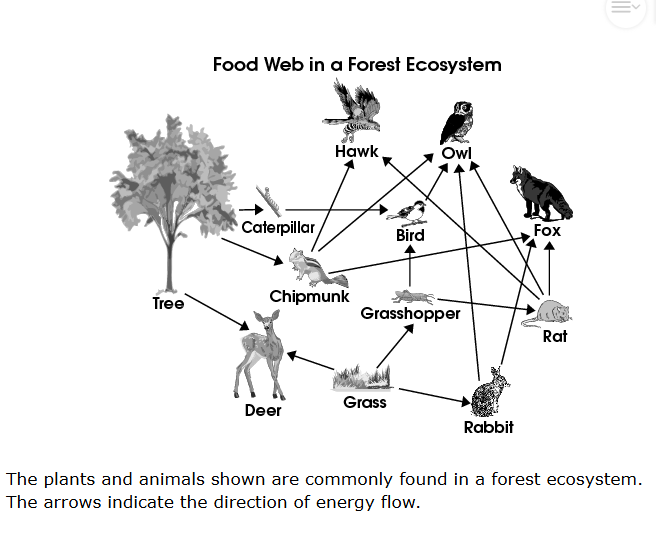
Grass
What is a food web?
A food web is a complex network of interconnected food chains that shows how energy flows through an ecosystem.
What percent of energy is lost after each level?
10%
What is photosynthesis?
Photosynthesis is the process by which plants convert sunlight, carbon dioxide, and water into glucose and oxygen.
What is the difference between a producer and a consumer?
A producer is an organism that uses sunlight to make its own food through photosynthesis.
A consumer is an animal that eats plants or other animals to obtain energy.
Perch are a type of fish that live in Lake Erie. A Lake Erie food web is shown.
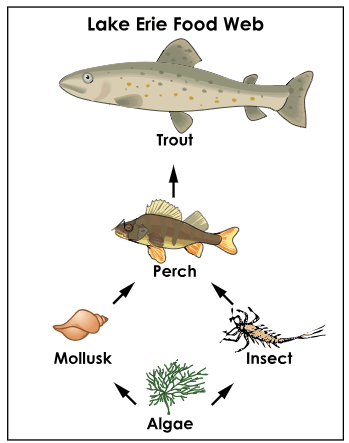
Perch use energy to avoid predators. Which statement describes how perch get energy to avoid predators, based on the food web?

B
Which animal is at the top of this food web (apex predator)?
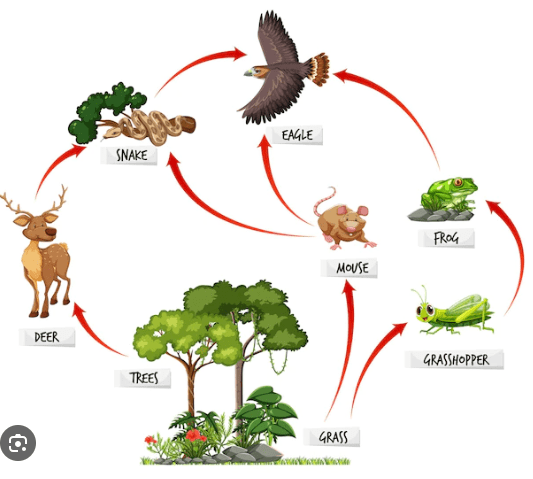
Eagle
Go Eagles! ;)
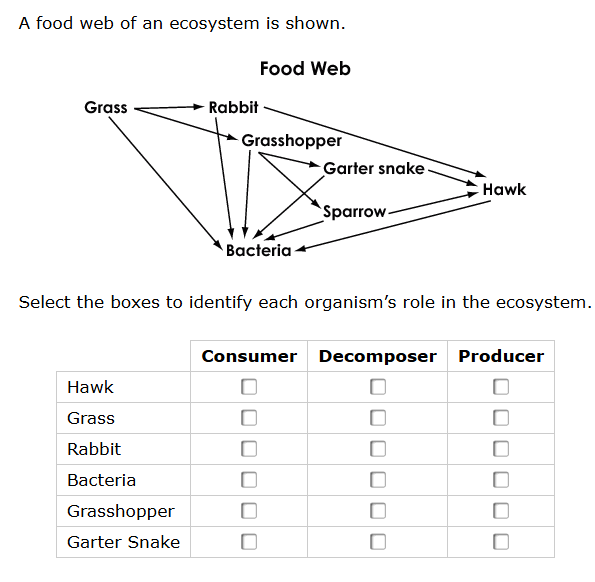
Consumers: Hawk, Rabbit, Grasshopper, Garter Snake
Decomposers: Bacteria
Producers: Grass
What does a food chain show?
The flow of energy as it passes from one organism to the next
What role do scavengers play in an ecosystem?
Decomposing Organic Matter: They consume dead animals and plants, breaking down organic material. This process helps to recycle nutrients back into the soil, making them available for producers like plants.
Cleaning Up the Environment: Scavengers help maintain ecosystem health by removing carcasses and waste. This prevents the spread of disease and keeps the environment clean.
Supporting Food Web Dynamics: They provide a food source for other organisms, including decomposers like fungi and bacteria, and some carnivores that may also feed on their remains.
Balancing Populations: By consuming dead animals, scavengers can help regulate populations of species, preventing overpopulation and maintaining ecological balance.
Explain how energy is transferred in an ecosystem.
Energy is transferred from the sun to producers, then to consumers, and finally to decomposers, with energy decreasing at each level.
How does energy flow in a food chain?
Energy flows from producers to consumers and then to decomposers, decreasing at each trophic level.
Explain what would happen if you removed all the producers from an ecosystem
The primary consumers would die and then all the rest of the consumers would eventually die too.
How do decomposers affect an ecosystem?
Decomposers break down dead organisms, returning nutrients to the soil, which supports new plant growth and maintains ecosystem health.
What are the the different types of consumers in an ecosystem and how are they different?
Herbivore- only eats plants.
Omnivore- eats both plants and animals
Carnivore- eats only animals
What happens to energy as it moves through an ecosystem?
Energy dissipates (is given off) as heat and is lost at each energy level, leading to fewer organisms at higher levels.
How does removing a species affect a food web?
Removing a species can lead to overpopulation of its prey and a possibly a collapse of the food web structure.
Create a food web of this ecosystem.
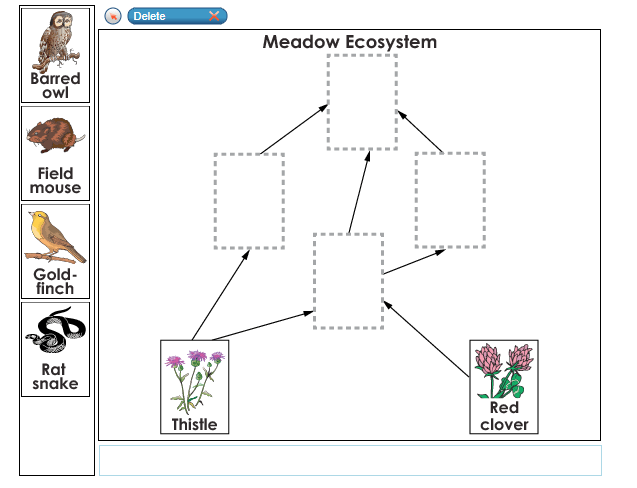
Top: Barred Owl
Middle: Gold-finch and rat snake
Bottom: Field Mouse